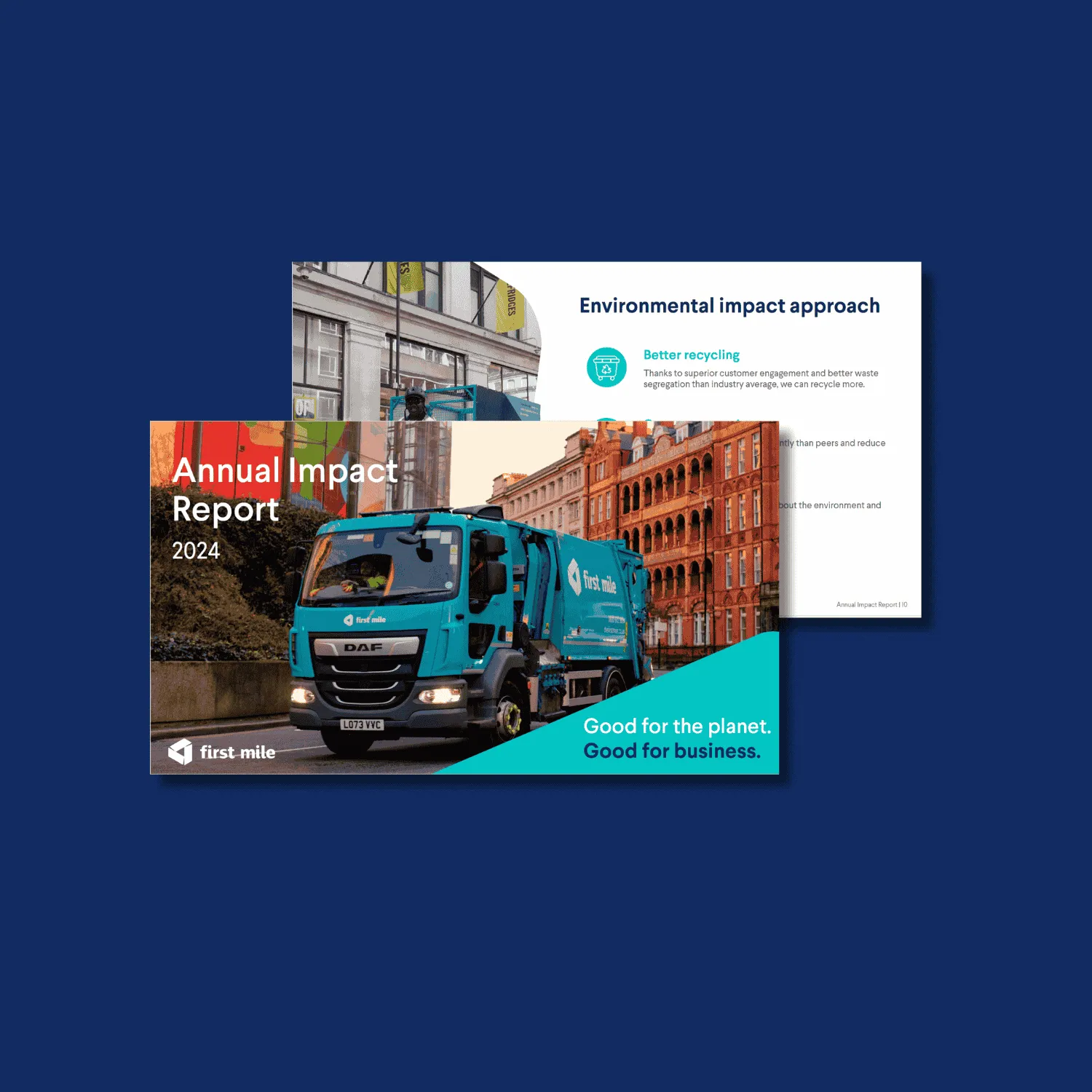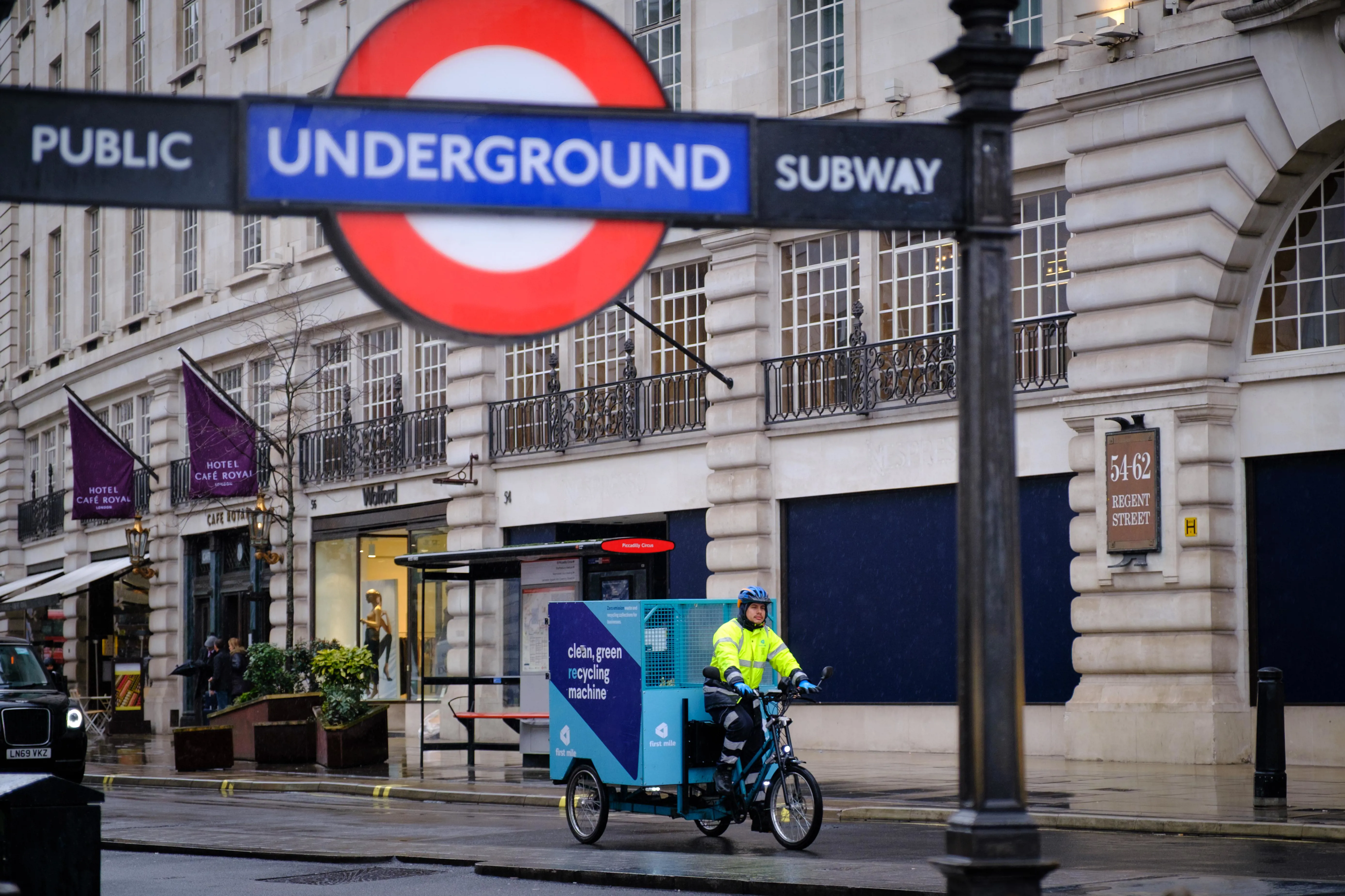
First Mile Impact Report
Our purpose is to slow down climate change by delivering innovative waste and recycling solutions to businesses that mean they can maximise their impact, whilst saving time and money.
In 2024, our focus on Planet and People led to real progress—higher recycling rates, lower carbon emissions across our operations, and new innovations driving circular solutions. This report highlights the impact of our work and commitment to building a more sustainable future. Good for the planet. Good for business.


About First Mile
We set out in 2004 on a mission to revolutionise business sustainability, starting with waste and recycling.
Today we help over 30,000 UK businesses with zero-to-landfill waste collection, and over 50 other waste and recycling services and solutions.
Along the way we've implemented lots of innovative tech to help us deliver a hassle-free, low impact, reliable service that’s good for the planet, and good for business.

